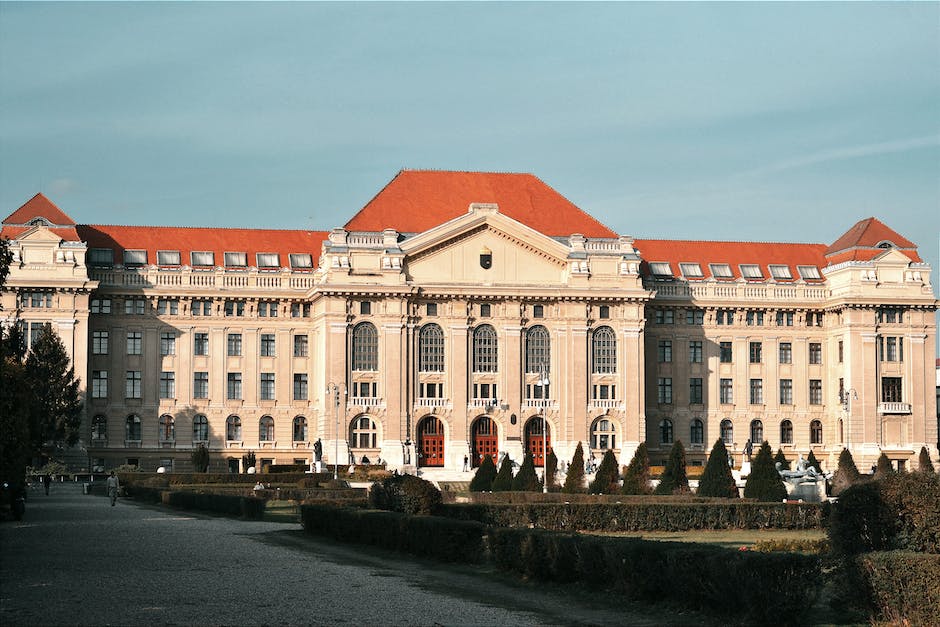Table of Contents
- Introduction
- The Role of Arab Leaders in Higher Education: A Comprehensive Overview
- Promoting Innovation and Research: How Arab Leaders are Driving Change in Higher Education
- Empowering Women in Higher Education: Arab Leaders’ Efforts and Achievements
- Enhancing Global Collaboration: Arab Leaders’ Impact on International Higher Education Partnerships
- Q&A
- Conclusion
“Arab Leaders in Higher Education: Shaping Minds, Guiding Futures”
Introduction
“Arab Leaders in Higher Education: Shaping Minds, Guiding Futures” is a comprehensive exploration of the influential role played by Arab leaders in the field of higher education. This insightful study delves into the significant contributions made by these leaders in shaping the minds of students and guiding the future of education in the Arab world. By examining their strategies, policies, and initiatives, this research sheds light on the transformative impact of Arab leaders in higher education and highlights their crucial role in fostering intellectual growth and societal development.
The Role of Arab Leaders in Higher Education: A Comprehensive Overview

Arab Leaders in Higher Education: Shaping Minds, Guiding Futures
The role of Arab leaders in higher education is crucial in shaping the minds of the future generation and guiding their futures. Arab leaders play a significant role in providing quality education, promoting research and innovation, and fostering a culture of excellence in higher education institutions across the Arab world.
One of the primary responsibilities of Arab leaders in higher education is to ensure the provision of quality education. They are responsible for setting educational policies, developing curriculum frameworks, and establishing standards that meet international benchmarks. By doing so, they ensure that students receive a well-rounded education that prepares them for the challenges of the globalized world.
Arab leaders also play a vital role in promoting research and innovation in higher education institutions. They allocate resources and funding to support research projects, encourage collaboration between academia and industry, and facilitate the dissemination of research findings. By fostering a culture of research and innovation, Arab leaders contribute to the advancement of knowledge and the development of solutions to societal challenges.
Furthermore, Arab leaders in higher education are responsible for creating an environment that encourages excellence. They establish mechanisms for quality assurance and accreditation, ensuring that institutions meet the highest standards of teaching, research, and governance. By promoting excellence, Arab leaders motivate students and faculty members to strive for the highest levels of achievement, thus enhancing the reputation of Arab higher education institutions globally.
In addition to their role in providing quality education, promoting research and innovation, and fostering excellence, Arab leaders in higher education also have a responsibility to address the unique challenges faced by Arab students. They must ensure that higher education institutions are inclusive and accessible to all, regardless of gender, socioeconomic background, or geographic location. By promoting inclusivity, Arab leaders contribute to the development of a diverse and skilled workforce that can drive economic growth and social development.
Moreover, Arab leaders in higher education have a crucial role in promoting cultural understanding and dialogue. They must encourage the exchange of ideas and knowledge between Arab countries and the rest of the world. By fostering international partnerships and collaborations, Arab leaders contribute to the enrichment of higher education institutions and the development of a global perspective among students and faculty members.
In conclusion, Arab leaders in higher education play a vital role in shaping the minds of the future generation and guiding their futures. They are responsible for providing quality education, promoting research and innovation, fostering excellence, addressing unique challenges, and promoting cultural understanding. By fulfilling these responsibilities, Arab leaders contribute to the development of a knowledgeable and skilled workforce that can drive economic growth and social development in the Arab world. It is essential for Arab leaders to continue their efforts in transforming higher education institutions into centers of excellence that prepare students to thrive in an ever-changing world.
Promoting Innovation and Research: How Arab Leaders are Driving Change in Higher Education
Promoting Innovation and Research: How Arab Leaders are Driving Change in Higher Education
In recent years, Arab leaders in higher education have been making significant strides in promoting innovation and research. These leaders recognize the importance of fostering a culture of innovation and research in their institutions, as they understand that it is through these endeavors that they can shape minds and guide futures.
One of the ways in which Arab leaders are driving change in higher education is by investing in research infrastructure. They understand that in order to promote innovation and research, they need to provide their faculty and students with state-of-the-art facilities and resources. By doing so, they are creating an environment that is conducive to groundbreaking research and innovation.
Furthermore, Arab leaders are also investing in research grants and scholarships. They understand that financial support is crucial in encouraging faculty and students to engage in research activities. By providing grants and scholarships, they are not only incentivizing research, but also ensuring that talented individuals have the means to pursue their academic and research aspirations.
In addition to investing in infrastructure and financial support, Arab leaders are also fostering collaboration and partnerships. They understand that in order to drive change and promote innovation, they need to work together with other institutions and organizations. By collaborating with international universities and research centers, Arab leaders are able to tap into a global network of knowledge and expertise, further enhancing the research capabilities of their institutions.
Moreover, Arab leaders are also focusing on curriculum development. They understand that in order to promote innovation and research, they need to provide their students with a curriculum that is relevant and up-to-date. By incorporating research-based learning and interdisciplinary approaches into their curriculum, Arab leaders are ensuring that their students are equipped with the necessary skills and knowledge to excel in their chosen fields.
Furthermore, Arab leaders are also promoting a culture of entrepreneurship and innovation. They understand that in order to drive change and promote innovation, they need to encourage their students and faculty to think outside the box and take risks. By providing support and resources for entrepreneurial endeavors, Arab leaders are fostering a spirit of innovation and creativity among their academic community.
Additionally, Arab leaders are also focusing on promoting research dissemination and knowledge exchange. They understand that research is only valuable if it is shared and utilized by others. By organizing conferences, seminars, and workshops, Arab leaders are providing platforms for researchers to present their findings and engage in meaningful discussions. This not only promotes collaboration and knowledge exchange but also helps to disseminate research findings to a wider audience.
In conclusion, Arab leaders in higher education are driving change and promoting innovation through various initiatives. By investing in research infrastructure, providing financial support, fostering collaboration, focusing on curriculum development, promoting a culture of entrepreneurship, and facilitating research dissemination, these leaders are shaping minds and guiding futures. Their efforts are not only transforming their institutions but also contributing to the overall development and progress of the Arab region. As they continue to prioritize innovation and research, Arab leaders are paving the way for a brighter future in higher education.
Empowering Women in Higher Education: Arab Leaders’ Efforts and Achievements
Empowering Women in Higher Education: Arab Leaders’ Efforts and Achievements
In recent years, there has been a growing recognition of the importance of empowering women in higher education. Arab leaders have been at the forefront of this movement, working tirelessly to create opportunities and support systems for women in pursuit of higher education. Their efforts have not only shaped minds but also guided futures, paving the way for a more inclusive and equitable society.
One of the key achievements of Arab leaders in higher education is the increase in female enrollment rates. In the past, women in the Arab world faced numerous barriers to accessing higher education. However, through targeted initiatives and policies, Arab leaders have successfully increased female enrollment rates, ensuring that women have equal opportunities to pursue their educational aspirations. This has not only empowered women but also contributed to the overall development and progress of Arab societies.
To further support women in higher education, Arab leaders have also focused on creating a conducive environment for their academic and personal growth. This includes establishing women’s centers and support networks within universities, providing mentorship programs, and implementing policies that promote gender equality on campus. These efforts have not only helped women overcome challenges but have also fostered a sense of belonging and empowerment, enabling them to thrive academically and professionally.
Arab leaders have also recognized the importance of promoting women’s leadership in higher education. They have actively encouraged women to take on leadership roles within universities and research institutions, breaking down traditional gender norms and stereotypes. By doing so, Arab leaders have not only provided women with opportunities for personal growth and career advancement but have also created role models for future generations, inspiring young women to pursue their dreams and aspirations.
Furthermore, Arab leaders have been instrumental in advocating for gender-responsive curriculum and research. They have recognized the need to address gender biases and stereotypes within educational materials and have worked towards incorporating diverse perspectives and experiences into the curriculum. This has not only enriched the learning experience for all students but has also contributed to a more inclusive and equitable society.
In addition to their efforts within their own countries, Arab leaders have also been actively engaged in regional and international collaborations to promote women’s empowerment in higher education. They have participated in conferences, workshops, and forums, sharing best practices and experiences with their counterparts from around the world. This exchange of knowledge and expertise has not only strengthened the efforts of Arab leaders but has also contributed to a global movement towards gender equality in higher education.
While significant progress has been made, challenges still remain. Arab leaders continue to work towards addressing issues such as gender-based violence, unequal access to resources, and societal expectations that limit women’s educational opportunities. However, their unwavering commitment and dedication to empowering women in higher education have laid a strong foundation for future progress.
In conclusion, Arab leaders have made remarkable achievements in empowering women in higher education. Through their efforts, they have increased female enrollment rates, created supportive environments, promoted women’s leadership, and advocated for gender-responsive curriculum and research. Their work has not only shaped minds but has also guided futures, paving the way for a more inclusive and equitable society. As we move forward, it is crucial to continue supporting and amplifying the voices of Arab leaders in their pursuit of gender equality in higher education.
Enhancing Global Collaboration: Arab Leaders’ Impact on International Higher Education Partnerships
Arab Leaders in Higher Education: Shaping Minds, Guiding Futures
Enhancing Global Collaboration: Arab Leaders’ Impact on International Higher Education Partnerships
In today’s interconnected world, higher education institutions are increasingly recognizing the importance of global collaboration. As the demand for international experiences and cross-cultural understanding grows, universities are seeking partnerships with institutions around the world to provide their students with a truly global education. Arab leaders in higher education have played a significant role in shaping these partnerships and guiding the future of international higher education.
One of the key ways in which Arab leaders have impacted international higher education partnerships is through their commitment to fostering cultural exchange. Arab universities have actively sought collaborations with institutions from different parts of the world, recognizing the value of exposing their students to diverse perspectives and experiences. By partnering with universities in Europe, North America, Asia, and beyond, Arab leaders have created opportunities for students to engage with different cultures, languages, and ways of thinking.
Furthermore, Arab leaders have been instrumental in promoting research collaborations between universities. Through joint research projects, scholars from different countries can come together to tackle global challenges and advance knowledge in their respective fields. Arab leaders have recognized the importance of these collaborations in addressing issues such as climate change, healthcare, and technology. By fostering research partnerships, Arab universities have not only contributed to the global body of knowledge but also provided their students with unique opportunities to work alongside leading scholars from around the world.
In addition to fostering cultural exchange and research collaborations, Arab leaders have also played a crucial role in promoting student mobility. Recognizing the transformative power of studying abroad, Arab universities have actively encouraged their students to pursue international experiences. By partnering with universities in different countries, Arab leaders have made it easier for their students to access study abroad programs, exchange opportunities, and joint degree programs. This has not only enriched the educational experiences of Arab students but has also contributed to the diversity and internationalization of campuses around the world.
Moreover, Arab leaders have been at the forefront of efforts to enhance the quality of higher education in their countries. Recognizing the importance of providing their students with world-class education, Arab universities have sought partnerships with renowned institutions to improve their academic programs, faculty development, and research infrastructure. By collaborating with leading universities, Arab leaders have been able to bring in expertise and resources that have helped raise the standards of higher education in their countries. This, in turn, has had a positive impact on international higher education partnerships, as universities from around the world are more willing to engage with Arab institutions that have demonstrated a commitment to excellence.
In conclusion, Arab leaders in higher education have made significant contributions to international higher education partnerships. Through their commitment to fostering cultural exchange, promoting research collaborations, encouraging student mobility, and enhancing the quality of education, Arab leaders have shaped the future of global collaboration in higher education. As the demand for international experiences continues to grow, the impact of Arab leaders on international higher education partnerships is likely to become even more pronounced. By working together, universities from different parts of the world can provide their students with the knowledge, skills, and experiences needed to thrive in an increasingly interconnected world.
Q&A
1. What is “Arab Leaders in Higher Education: Shaping Minds, Guiding Futures”?
“Arab Leaders in Higher Education: Shaping Minds, Guiding Futures” is a program or initiative focused on the role of Arab leaders in shaping the education sector and guiding the future of higher education.
2. Who organizes “Arab Leaders in Higher Education: Shaping Minds, Guiding Futures”?
The organizers of “Arab Leaders in Higher Education: Shaping Minds, Guiding Futures” are not specified in the question.
3. What is the purpose of “Arab Leaders in Higher Education: Shaping Minds, Guiding Futures”?
The purpose of “Arab Leaders in Higher Education: Shaping Minds, Guiding Futures” is to explore the impact and influence of Arab leaders in the field of higher education and their role in shaping the future of education.
4. Who are the target participants of “Arab Leaders in Higher Education: Shaping Minds, Guiding Futures”?
The target participants of “Arab Leaders in Higher Education: Shaping Minds, Guiding Futures” are likely to be Arab leaders and professionals working in the higher education sector.
Conclusion
In conclusion, “Arab Leaders in Higher Education: Shaping Minds, Guiding Futures” highlights the significant role played by Arab leaders in shaping the minds of students and guiding their future paths in higher education. These leaders have a crucial responsibility in providing quality education, fostering innovation, and promoting critical thinking among students. By investing in higher education and supporting academic institutions, Arab leaders contribute to the development of a knowledgeable and skilled workforce, which is essential for the progress and prosperity of their nations. Through their leadership, Arab leaders have the power to shape the future of their societies by empowering the youth with the necessary knowledge and skills to navigate the challenges of the modern world.




